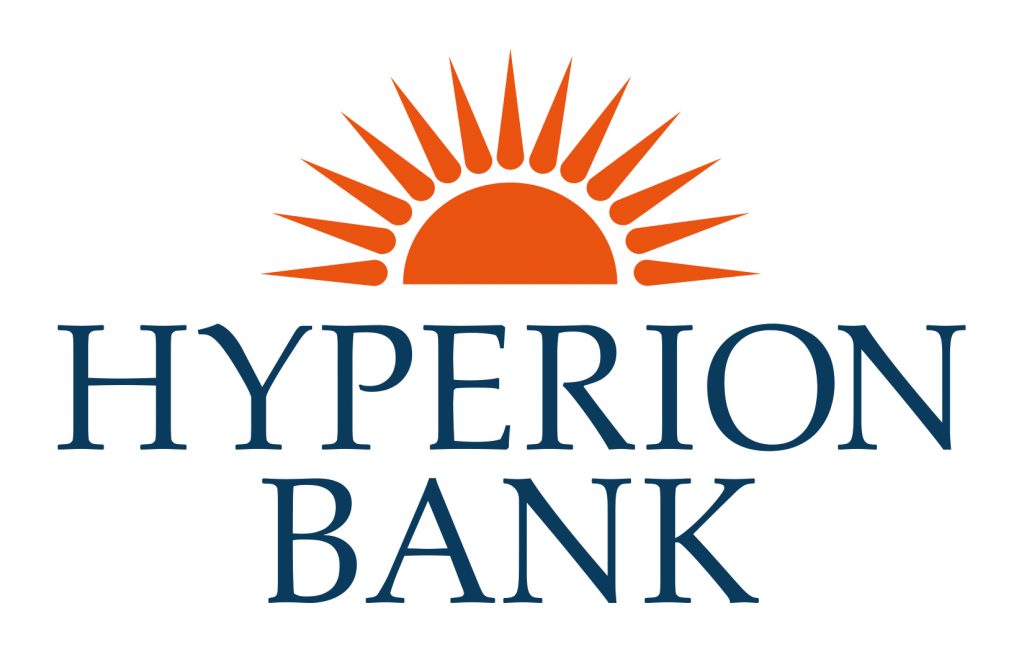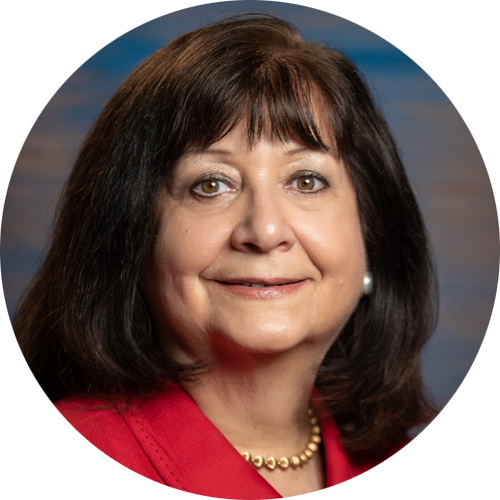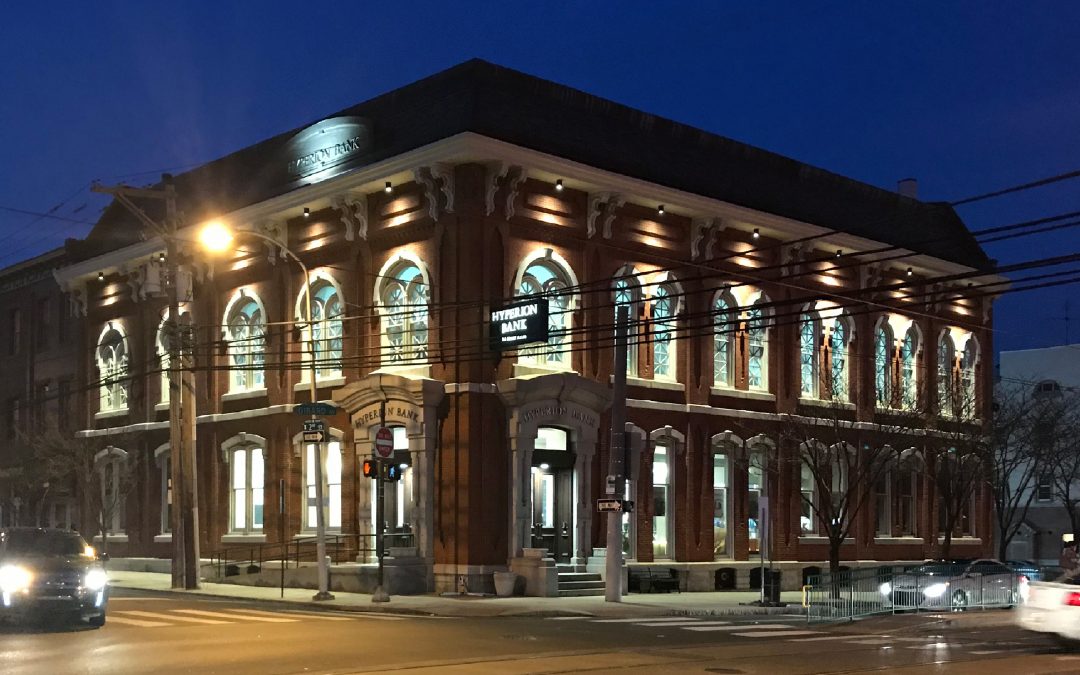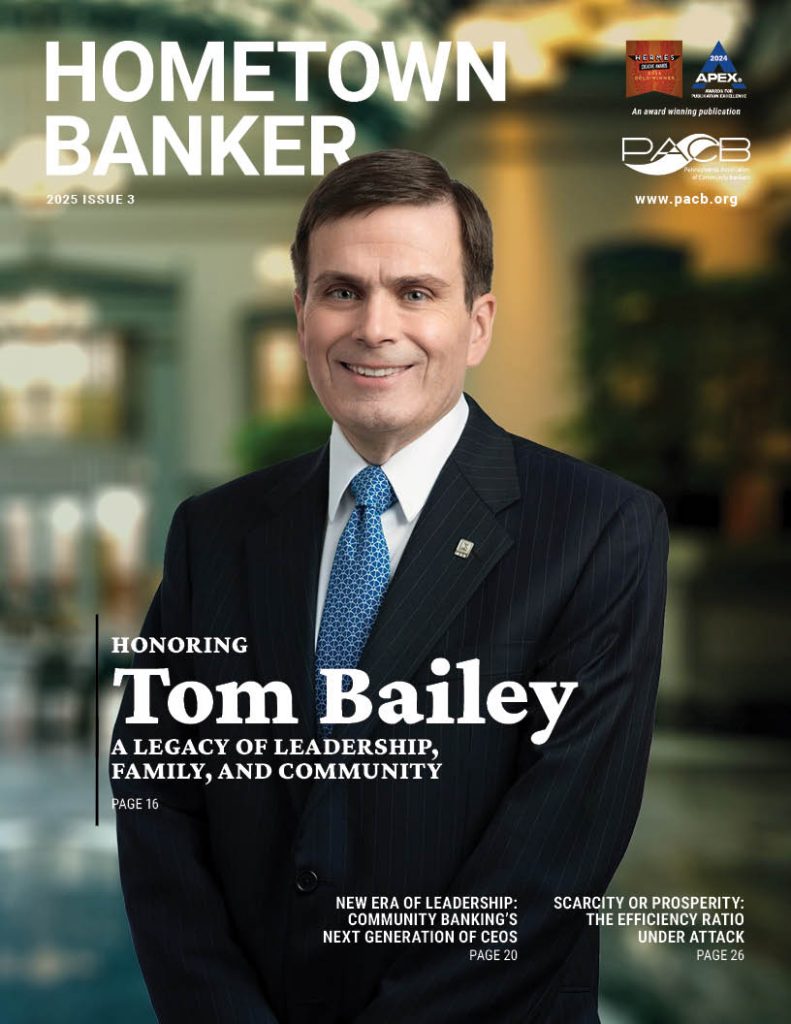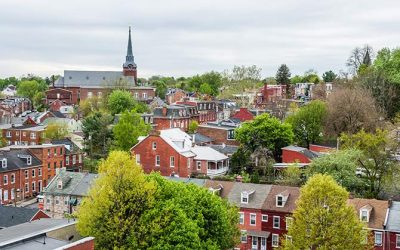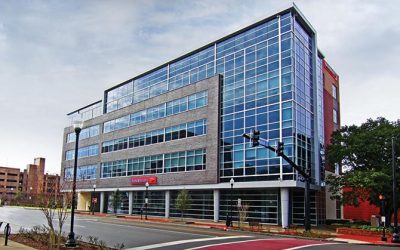By: Ellen F. Warren
What does it take to build—or rebuild—a community?
Lou DeCesare, President and Chief Operating Officer of Hyperion Bank, says, “Every neighborhood needs a bank, a supermarket, and a drugstore—but these are things that not every inner city neighborhood has anymore because a lot of those services have moved out.”
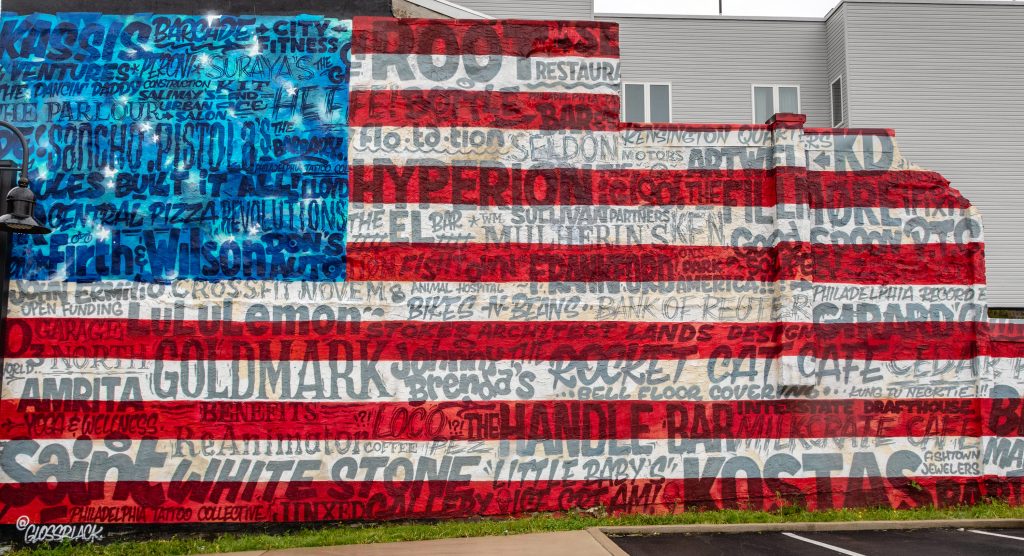
“Historically, when people came to America, the community Building & Loan associations were the way that local businessmen helped new homeowners gain a foothold in the neighborhood. Jobs and businesses were created, and then the community prospered. The bank was the lynchpin to community development,” observes Paul Rutkowski, Hyperion’s Chief Financial Officer.
Thus, when Pennsylvania Governor Ed Rendell cut the ribbon at Hyperion Bank’s grand opening in December 2006, local business leaders celebrated the first community bank to open in an urban part of Philadelphia in more than 20 years.
Located at the corner of 2nd Street and Girard Avenue, Hyperion Bank’s only location is in a historic building that was first constructed for the Eighth National Bank in 1871. Over the course of a century, the Eighth was one of many local banks that fled or failed or merged into banking behemoths, leaving the formerly industrial communities of Northern Liberties, Fishtown, Kensington, and Port Richmond underserved.
“Every neighborhood needs a bank, a supermarket, a drugstore”
Lou DeCesare, President and COO, Hyperion Bank
PACB President & CEO Nick DiFrancesco notes that in a rural area, when the community bank closes, there aren’t a lot of options for the people left behind—but in cities with many large financial institutions, it can be harder to realize the impact of lost community banking services on urban neighborhoods.
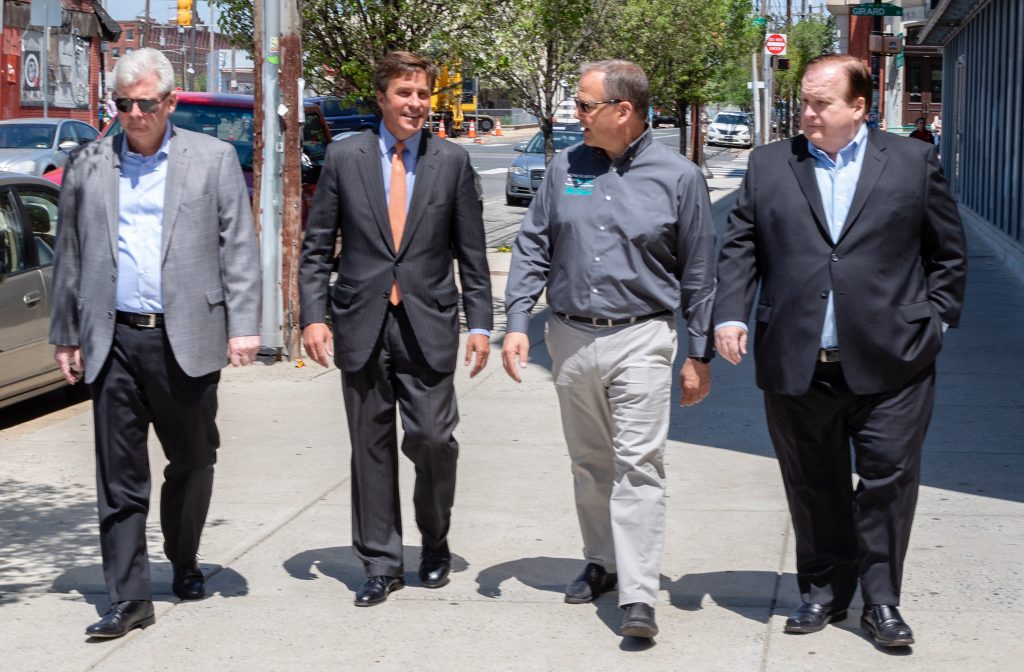
That impact could be seen on the streets around the Bank, which like the empty bank building, had seen better days. But in its crumbling façade, Hyperion’s early investors saw an opportunity to help rebuild the communities that were beginning to transform around its pivotal intersection. A painstaking, two million dollar restoration brought the grand landmark back to life, and in 2007 Hyperion Bank’s rehabilitation earned the Grand Jury Award from the Preservation Alliance for Greater Philadelphia. The building’s rebirth as a new community bank was a welcome harbinger of the local growth yet to come.
Now, the once-vacant lot across the street is an ACME supermarket, and the area is blooming with trendy breweries, destination restaurants, and new housing rising block by block to accommodate the influx of millennials, young families, and empty nesters seeking a more affordable alternative to expensive Center City. Where generations of families previously came and stayed to work in the local mills and factories, recent home sales have surpassed the million-dollar benchmark. Still, the neighborhoods are a blend of traditional residents with deep family roots, young entrepreneurs, first-time homeowners, and strong ethnic communities.
A COMMUNITY CORNERSTONE
“When Hyperion Bank started 12 years ago, it may have been a bit early for its neighborhood,” says Charles B. “Charlie” Crawford, Jr., who became Hyperion’s Chairman and Chief Executive Officer in August 2017. “What’s been terrific is that the neighborhood has really developed around the bank, in terms of new people moving in.”
“Whether we’re serving an individual person or company, we can personalize our services to meet specific needs”
Lou DeCesare, President and COO, Hyperion Bank
“And as people move in, businesses follow,” notes DeCesare.
Following the local ownership model established by the early community banks, Hyperion Bank differentiates itself with local leadership and decision-making grounded in personal relationships and a deep understanding of what the community needs.
“We’re now broadening our services beyond commercial real estate lending and government-guaranteed SBA lending to offer the full-service suite of business and consumer products that every individual would need and expect from their local bank,” says Crawford.
“Whether we’re serving an individual person or company, we can personalize our services to meet specific needs,” DeCesare adds. “Larger institutions typically have a ‘box’ for every product, and you need to fit in that box. They don’t have much latitude because they’re managing a gigantic marketplace. If you fit their box, you get what they have; if not, you don’t get to talk to the decision-maker. At Hyperion, you can always talk to a decision-maker who knows the community and understands why you have the needs you have.”
DeCesare should know, as he was born in a hospital just down the street from the Bank, and like Rutkowski, has spent more than three decades working in Philadelphia financial institutions. Crawford returned to the City more than 30 years after earning degrees from the University of Pennsylvania and its Wharton School of Business to find a city that has changed tremendously. Together, they are all champions of community banking who are positioning Hyperion Bank to support—and benefit from—the growth in local consumers and regional business opportunities.
“After graduating from Penn, I went to a very large money-center bank in New York, and then took every chance in my banking career to move down to smaller institutions before starting a community bank in another market,” says Crawford. “What really attracted me back to Philadelphia and Hyperion was the opportunity to lead and operate with a great group of people, and serve the community very differently than with the big bank model.”
A GOOD PARTNER
Local real estate developers Tracy and Mia Levesque experienced the Hyperion Bank difference firsthand when they tried to get financing for a mixed-use redevelopment project in Fishtown. As small business owners of a website development company, the Levesques are active members of the city’s burgeoning creative and digital economy.
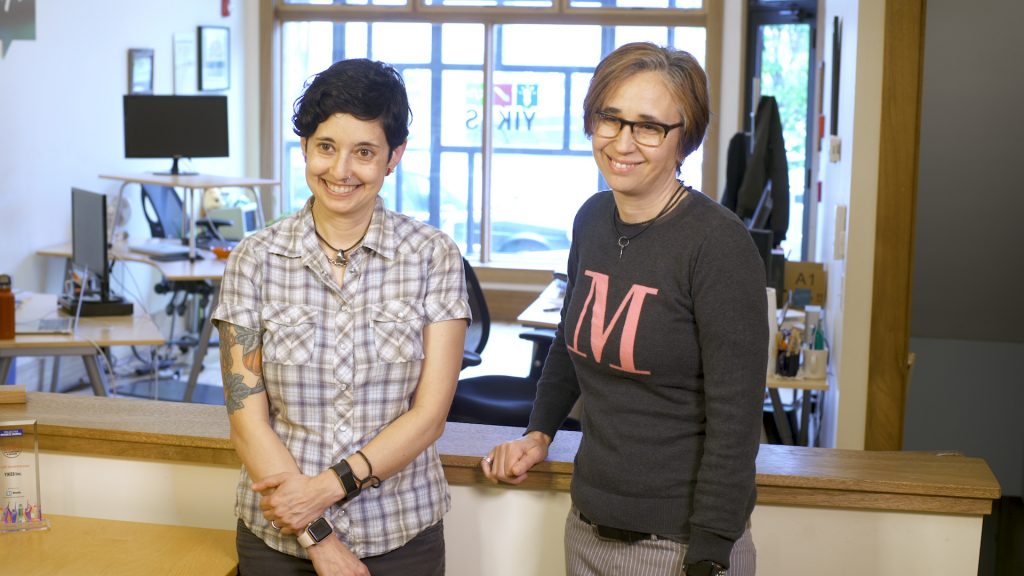
Tracy Levesque says she first fell in love with Philadelphia’s historic buildings as a Temple University student in 1988, bicycling around the neighborhoods. So when she found two side by side, completely rundown buildings on Girard Avenue, she envisioned a “green” renovation that could house their business, as well as a storefront and residential apartments.
“Tracy could see something in those buildings that no one else could see,” says Mia Levesque.
“First I went to the larger banks for construction financing, but they didn’t understand my vision,” Tracy says. “Then we went to Hyperion Bank, and they listened and took us seriously and treated us like people. We met everyone from the President to the tellers. That was a really nice experience compared to the other banks. It was good to have Hyperion as a partner who had faith in the project.”
Mia adds, “The benefits of working with a local bank like Hyperion are that they understand the characteristics of the community where you’re trying to operate your business. They know the value and the trajectory of the neighborhood; they take time to know your business as more than just numbers, and they see how what you want to do will contribute to the community. Where a large bank might see an out of the ordinary project like ours as a risk, a local bank will get that it’s actually a pretty safe bet.”
With a loan and project management guidance from Hyperion Bank, the Levesques were able to complete Pennsylvania’s first U.S. Green Building Council LEED Platinum redevelopment project. “We could not have done this without Hyperion’s help,” Tracy says.
A HUMAN CONNECTION
Tracy now uses Hyperion’s leading-edge technology to make loan payments and manage the property’s finances. “While I enjoy visiting the Bank’s very welcoming office, I find it incredibly convenient to use their mobile app and all the online banking tools, because all of Hyperion’s remote tools are fabulous,” she says. “And I appreciate that when I do have to communicate with Hyperion, there’s a human connection, not just a robot interacting with me.”
“We think and operate with the same opportunities and challenges that our customers have”
Charlie Crawford, Chairman and CEO, Hyperion Bank
Hyperion takes great pride in fostering that human connection. Crawford says, “The most important thing about our bank is the people. We have 21 employees, and that’s one of the reasons why we resonate so well with our business and individual customers. We are a small business, too, so we think and operate with the same opportunities and challenges that our customers have.”

Customers Nicole and Joe Joy were grateful for that small business understanding when they wanted to grow their South Jersey hair salon. They were initially apprehensive about taking on a big construction project until Frank Sullivan, Hyperion’s Executive Vice President for Commercial Lending, went to their business, explained the loan process, and reassured them that Hyperion would help them finance and complete their building expansion in the quickest and smoothest way possible. “And that’s exactly what happened,” says Nicole.
Joe Joy adds, “We were unsure of what to expect, but Hyperion looked at us as individuals, as a family, and as business owners. Unlike a lot of the big banks, when we met with people at Hyperion, we felt that they were invested in our community and our plans. Hyperion made us feel safe and in control of our finances. Working with Frank and Hyperion was an awesome experience.”

Nixon Jung agrees. “I started my business to support other small businesses and the community, and found that Hyperion Bank was a great fit for me. Hyperion was extremely different than most other banks, which look at you like you’re a book cover, but they don’t bother to look inside and read the book. At Hyperion they invest their time to really get to know you. The generosity, the respect and overall kindness that I received at Hyperion made me want to partner with them. They gave me my first loan and helped me expand my portfolio, and now I am giving back to the community by renovating properties and creating jobs.”
And that’s why Roy Bowser believes it’s important to invest with a community bank like Hyperion. He says, “When I started in real estate, I wanted to put my money back into the community that I came from. So having a local bank like Hyperion as a partner is like walking hand-in-hand with your community bank. I think it’s a win-win situation.”
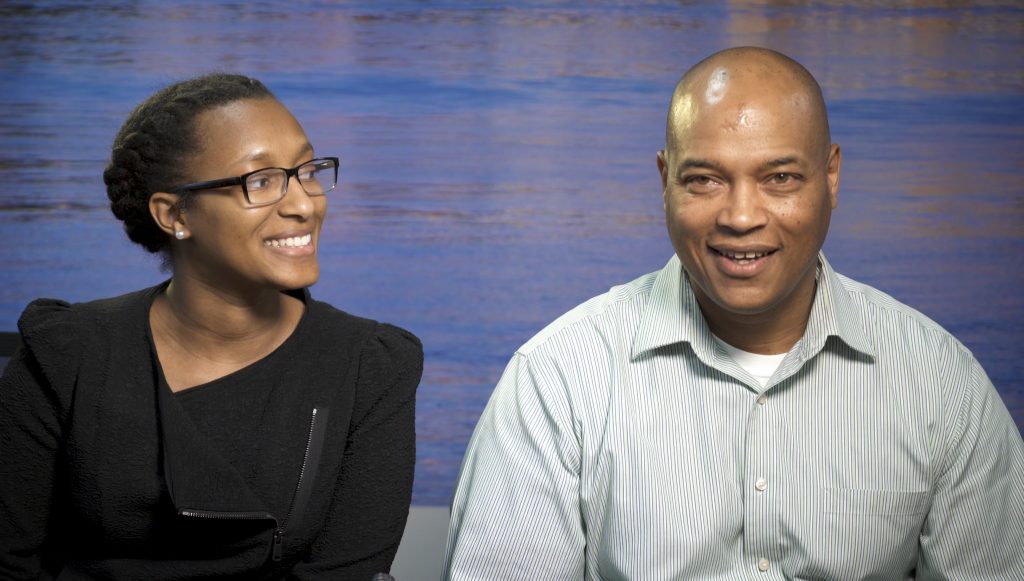
Roy shares his passion for real estate investing with his daughter, Alyssa, who is following in her father’s footsteps, both where they work in the federal government and in the community.
“I’m confident about pursuing my real estate investment business with Hyperion because my father got his first loan from Hyperion Bank nine years ago and stayed with them as he grew year after year, and that speaks volumes to me,” says Alyssa Bowser.
“I believe it’s important for organizations to focus on community development and sustainability and Hyperion Bank does a great job at that because they are integrated into the community and they care about the people,” she says. “I choose to do business with people who care about me, not just as a customer, but as a relationship.”
Serving the community is embedded in Hyperion Bank’s culture, whether it means going to a customer’s home or office for banking services, volunteering on nonprofit boards, supporting the local police precinct’s charitable initiatives, raising funds for local schools, or investing in new Bank building lights to illuminate the streets at night, making them safer for the neighborhood’s bustling 24/7 lifestyle.
“We need to be good citizens during the day, in the evening, and on weekends,” says Crawford. “Our office is open on Saturdays because our customers asked for it. It’s important that we give back to the community and give customers what they need.”
“We’ve got big plans for the bank,” Crawford adds. “We now offer home mortgage loans, and soon we’ll be launching a residential construction loan product so we can provide one-stop shopping for consumers who want to build a home and then finance it over time. For the last decade, Hyperion’s had a smaller, quieter story, but we’ve brought in some new capital and we’re going to grow the bank to better serve the local market.”
That’s good news for Hyperion Bank’s customers, many of whom believe in supporting a bank that in turn supports the community. As Roy Bowser says, “Hyperion Bank is like family.”
